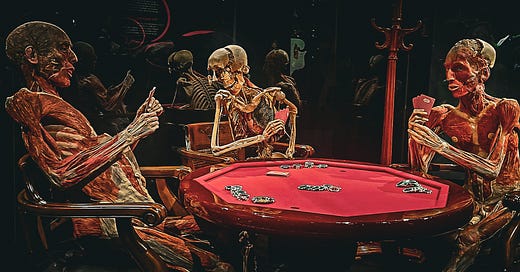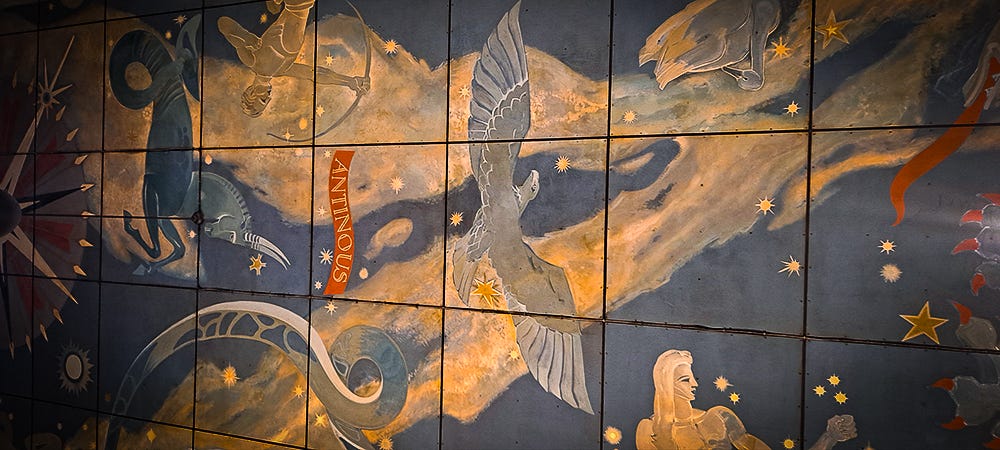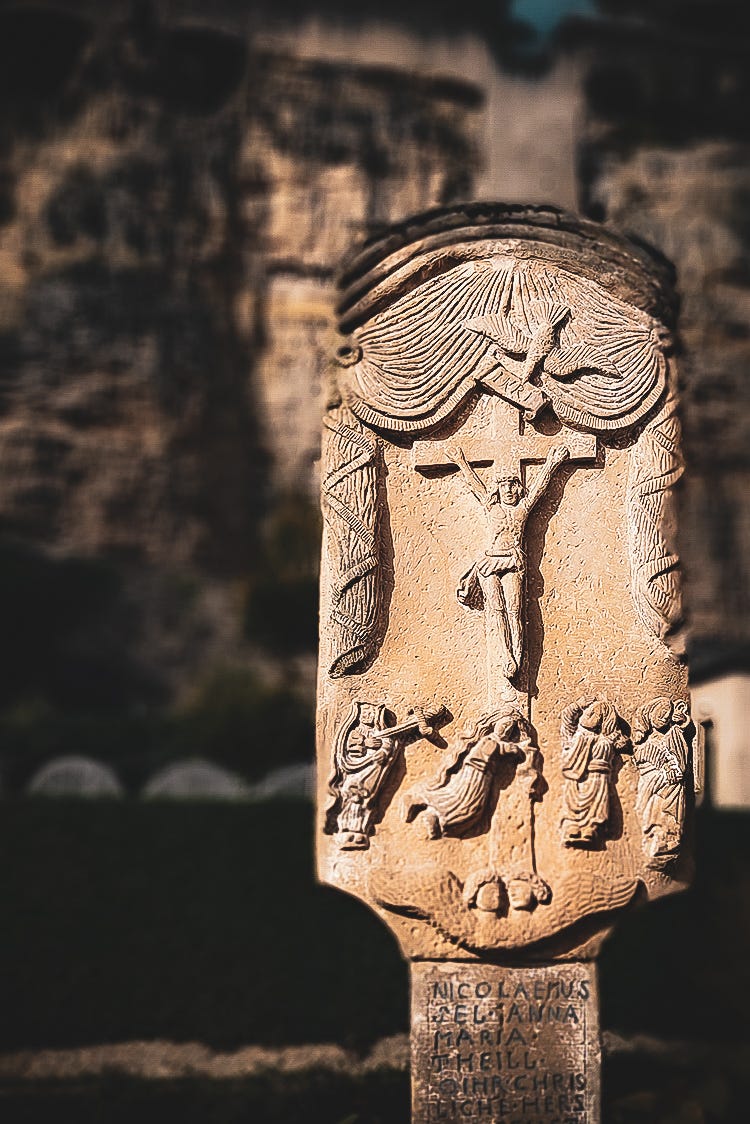i raise you (several) bodies: March 2024 Essay Recommendations
What do princesses, pin-ups, politics, and passover have in common? These bodies collide in this month's roundup.
Coming out of Holy Week, commemorating the breaking and restoration of the Divine Body amid continuing intellectual threads about human physicality and what it’s good for (especially as it pertains to men and their nature), I knew this roundup would focus heavily on body issues. Here’s to a more focused edition of things I’ve been reading and thinking about the past few weeks.
royal bodies
I’ve been largely ignorant of the chatter surrounding Kate Middleton (HRM Princess of Wales) over the past few weeks (months?). Still, I found a discussion by
enlightening: with the royal’s health drama as a backdrop, she discusses what the royal body means to the body politic. A royal’s personage is subject to a set of expectations: to bear offspring and to be a symbol of stability and headship. “To be royal is to have a body that exists to be looked at.” In essence, a royal’s body is not their own. It is a body to which others lay weighty claim.Pengelly also has another good piece about artist cliques and critic culture, and how would-be critics sometimes bite their tongues because the people they’re wont to criticize could influence their future careers.
(conservative) american bodies
The New York Times is trying to figure out how some conservative Americans, many of whom consider themselves really Christian, got to the point where they’re endorsing a (heavily politicized) version of a swimsuit calendar. (And that’s not to mention why some of those same conservatives are championing a particular young actress’s good looks and cleavage display as a sign that the liberals are losing!) Aren’t these the folks who are into purity rings and saving sex for marriage and no nudity in movies?
Anyway, conservatives have been arguing with each other online about whether this is okay. (It’s not. It’s crass and classless and devalues the people it’s supposed to represent.) The reasons given in defense of the “Conservative Dad’s Real Women of America” calendar are immature and half-baked. Still, its existence says something about where we are as a country. Have no fear: The Raunchy Christians Are Here.
Speaking of American conservatism…
I don’t think the “God Bless the USA” Bible is the Bible we deserve, as
argues here, but we both certainly hate that it exists.Not everyone is extreme and weird and reactionary, least of all
who has this moving, measured, and insightful essay: What ‘Post-Evangelical’ Means to Me.
natural bodies
Returning to nature is lofted as a worthy aspiration for the general public. But what does it mean to really separate from the city and spend more time in less-manufactured environs? Can we ever truly fulfill that goal? And what are the merits (and drawbacks) of doing such? Greta Gaffin addresses these questions in her Plough piece, Meeting the Wolf.
Our ideas about nature are often drawn from Romanticism, from the writings of men of means who longed for an idealized English countryside (an English countryside that, of course, had already been shaped by human cultivation for thousands of years). They had to contend with the smog and soot and stench that spared no one in London. Nature seemed better. It was also free, they imagined, of the political machinations and intrigues and elaborate etiquette of the city. They believed that rural people lived simple, uncomplicated lives free of the influences of modernity. But those Romantic writers and artists who did go “back to the land” tended not to fully do the work of wrenching a living from it.
gendered bodies
As you may know, I’ve started writing about manhood and masculinity recently, bringing all sorts of thoughts about masculine and feminine traits and how we’re supposed to relate those to a positive expression of the body to the fore. In light of these conversations, a friend sent me Jane Scharl’s lecture titled, Embodied Sainthood: Gender and Dragon-Slaying. I’m not yet sure how closely I agree or disagree with Jane’s central point—I think I’m primarily uncomfortable with how she draws her conclusion—but it’s definitely a thought-provoking discussion.
In other gender/body matters…
- has a good look at the “impoverished sexuality” of the Oscar-winning film Poor Things.
On gender transitioning,
explains the based view that the desire to do something doesn’t make it quite right.Brett McCracken argues that Barbie, Maestro, and American Fiction flattened characters by focusing solely on particular aspects of the main characters’ identities. (Interesting stuff, but if you can tell me why I don’t wholly agree with this take, I will give you a gold star. Comments are open.)
Finally, while the body of Jesus isn’t literally up for grabs, its symbolic power is.
tackles attempts to coopt Jesus’ body as a symbol for transgender apologetics.
God’s body
Resurrection Sunday is the sort of thing we all want to be associated with. A celebration! A great comeback! A magnificent reversal of misfortune! But truth be told, some people identify more consistently with the darkness, pain, and abject misery of the Friday we’ve come to call “good.” Bethel McGrew writes about that.
Debates about the body notwithstanding, take comfort that the resurrection of our bodies and the immortality of our souls are dependent on an all-powerful God as John Donne would have us know (h/t
). Rejoice! One day, we’ll have these same bodies but better.









Thank you for sharing my 'Poor Things' piece! Also, I'm glad to be made aware of the various happening and articles discussed in your "(conservative) american bodies" section. I may need to write about that myself in the future.
Thanks for flagging my Royal Bodies essay! Very interested to hear your thoughts on gendered bodies. I edited The Book of Queer Prophets a few years ago which has plenty to say (from a wide range of experiences) on the matter. GP